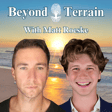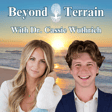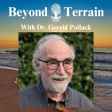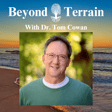
Chronic Illness Is Not What You Think | Terrain, Nerves & Real Healing
Learn more in the the Beyond Terrain Academy
https://beyondterrain.com/beyond-terrain-academy/
Chronic illness is not what you think.
In this episode, we are joined once again by Emrys Goldsworthy — who is deeply versed in the nervous system, vagus nerve, and chronic disease. Together, they explore why so many people feel stuck in their healing journey and what the terrain perspective reveals about true regeneration.
We discuss:
- Why the nervous system—not the immune system—drives most “autoimmune” conditions
- How thyroid and adrenal issues begin as nerve dysfunction
- The hidden dangers of fasting and “feeling better” too soon
- Why pain, inflammation, and even fatigue may be healing responses
- How to restore vagal tone through movement, food rhythm, and environment
- The deeper philosophy of adaptation, structure, and “maladaptation” in chronic disease
This is one of the most practical and paradigm-shifting episodes yet.
We go beyond theory — into physiology, philosophy, and actionable terrain-based insight.
Keep up with me
https://www.instagram.com/beyond.terrain/
Buy The Truth About Parasites (E-book)
https://beyondterrainmentorship.com/parasitebook
Our vision at Beyond Terrain is greatly supported by sharing our work!
Learn more from and support our esteemed guest, Emrys Goldsworthy










![DNA Doesn't Exist & Genomic Nonsense with Dr. Jerneja Tomsic [Part 2] image](https://media.zencastr.com/cdn-cgi/image/width=112,quality=85/image-files/652933f3a749dc383eb375de/ce5a5fd9-98c9-44fe-9b4b-3d0cd5abcf29.png)







